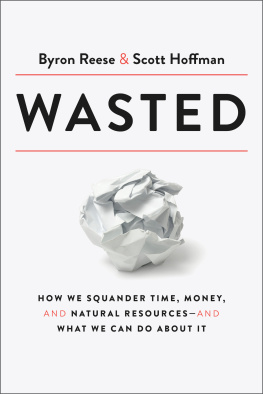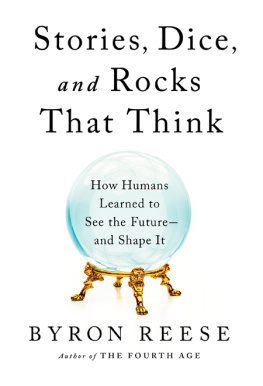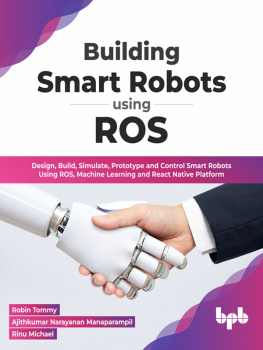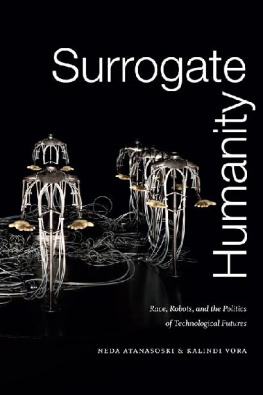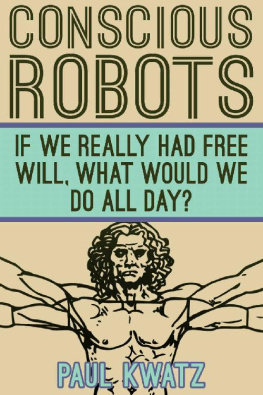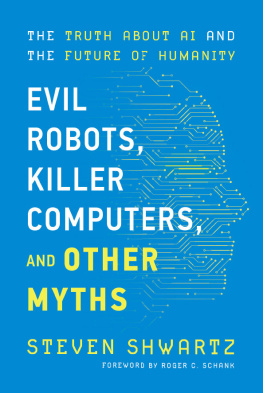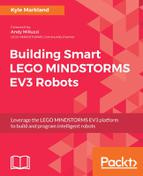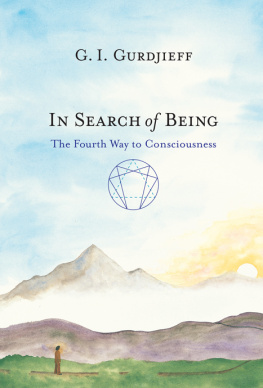Byron Reese - The Fourth Age: Smart Robots, Conscious Computers, and the Future of Humanity
Here you can read online Byron Reese - The Fourth Age: Smart Robots, Conscious Computers, and the Future of Humanity full text of the book (entire story) in english for free. Download pdf and epub, get meaning, cover and reviews about this ebook. year: 2018, publisher: Atria Books, genre: Romance novel. Description of the work, (preface) as well as reviews are available. Best literature library LitArk.com created for fans of good reading and offers a wide selection of genres:
Romance novel
Science fiction
Adventure
Detective
Science
History
Home and family
Prose
Art
Politics
Computer
Non-fiction
Religion
Business
Children
Humor
Choose a favorite category and find really read worthwhile books. Enjoy immersion in the world of imagination, feel the emotions of the characters or learn something new for yourself, make an fascinating discovery.

- Book:The Fourth Age: Smart Robots, Conscious Computers, and the Future of Humanity
- Author:
- Publisher:Atria Books
- Genre:
- Year:2018
- Rating:4 / 5
- Favourites:Add to favourites
- Your mark:
- 80
- 1
- 2
- 3
- 4
- 5
The Fourth Age: Smart Robots, Conscious Computers, and the Future of Humanity: summary, description and annotation
We offer to read an annotation, description, summary or preface (depends on what the author of the book "The Fourth Age: Smart Robots, Conscious Computers, and the Future of Humanity" wrote himself). If you haven't found the necessary information about the book — write in the comments, we will try to find it.
The Fourth Age: Smart Robots, Conscious Computers, and the Future of Humanity — read online for free the complete book (whole text) full work
Below is the text of the book, divided by pages. System saving the place of the last page read, allows you to conveniently read the book "The Fourth Age: Smart Robots, Conscious Computers, and the Future of Humanity" online for free, without having to search again every time where you left off. Put a bookmark, and you can go to the page where you finished reading at any time.
Font size:
Interval:
Bookmark:
Thank you for downloading this Simon & Schuster ebook.
Get a FREE ebook when you join our mailing list. Plus, get updates on new releases, deals, recommended reads, and more from Simon & Schuster. Click below to sign up and see terms and conditions.
CLICK HERE TO SIGN UP
Already a subscriber? Provide your email again so we can register this ebook and send you more of what you like to read. You will continue to receive exclusive offers in your inbox.
We hope you enjoyed reading this Simon & Schuster ebook.
Get a FREE ebook when you join our mailing list. Plus, get updates on new releases, deals, recommended reads, and more from Simon & Schuster. Click below to sign up and see terms and conditions.
CLICK HERE TO SIGN UP
Already a subscriber? Provide your email again so we can register this ebook and send you more of what you like to read. You will continue to receive exclusive offers in your inbox.


An Imprint of Simon & Schuster, Inc.
1230 Avenue of the Americas
New York, NY 10020
www.SimonandSchuster.com
Copyright 2018 by Byron Reese
All rights reserved, including the right to reproduce this book or portions thereof in any form whatsoever. For information, address Atria Books Subsidiary Rights Department, 1230 Avenue of the Americas, New York, NY 10020.
FirstThis Atria Books hardcoverInternational export edition April 2018
 and colophon are trademarks of Simon & Schuster, Inc.
and colophon are trademarks of Simon & Schuster, Inc.
For information about special discounts for bulk purchases, please contact Simon & Schuster Special Sales at 1-866-506-1949 or .
The Simon & Schuster Speakers Bureau can bring authors to your live event. For more information or to book an event, contact the Simon & Schuster Speakers Bureau at 1-866-248-3049 or visit our website at www.simonspeakers.com.
Interior design by Dana Sloan
Jacket design by Chris Sergio
Jacket illustration Brian Levy
Author photograph by Damon Leo
Library of Congress Cataloging-in-Publication Data is available.
ISBN 978-1-5011-5856-8ISBN 978-1-5011-9162-6
ISBN 978-1-5011-5858-2 (ebook)
To Sarah, Michael, John, and Peter
who every day give me new reasons to believe in a better tomorrow
(Please read. Not the usual blah-blah stuff.)
R obots. Jobs. Automation. Artificial intelligence. Conscious computers. Superintelligence. Abundance. A jobless future. Useless humans. The end of scarcity. Creative computers. Robot overlords. Unlimited wealth. The end of work. A permanent underclass.
Some of these phrases and concepts probably show up in your news feed every day. Sometimes the narratives are positive, full of hope for the future. Other times they are fearful and dystopian. And this dichotomy is puzzling. The experts on these various topics, all intelligent and informed people, make predictions about the future that are not just a little different, but that are dramatically different and diametrically opposed to each other. So, why do Elon Musk, Stephen Hawking, and Bill Gates fear artificial intelligence (AI) and express concern that it may be a threat to humanitys survival in the near future? And yet, why do an equally illustrious group, including Mark Zuckerberg, Andrew Ng, and Pedro Domingos, find this viewpoint so farfetched as to be hardly even worth a rebuttal? Zuckerberg goes so far as to call people who peddle doomsday scenarios pretty irresponsible, while Andrew Ng, one of the greatest minds in AI alive today, says that such concerns are like worrying about overpopulation on Mars. After Elon Musk was quoted as saying AI is a fundamental risk to the existence of human civilization, Pedro Domingos, a leading AI researcher and author, tweeted, One word: Sigh. Each groups members are as confident in their position as they are scornful of the other side.
With respect to robots and automation, the situation is the same. The experts couldnt be further apart. Some say that all jobs will be lost to automation, or at the very least that we are about to enter a permanent Great Depression in which one part of the workforce will be unable to compete with robotic labor while the other part will live lavish lives of plenty with their high-tech futuristic jobs. Others roll their eyes at these concerns and point to automations long track record of raising workers productivity and wages, and speculate that a bigger problem will be a shortage of human laborers. While fistfights are uncommon between these groups, there is condescending invective aplenty.
Finally, when considering the question of whether computers will become conscious and therefore alive, the experts disagree yet again. Some believe that its an obvious fact that computers can be conscious, and thus any other position is just silly superstition. Others emphatically disagree, saying that computers and living creatures are two very different things and that idea of a living machine is a contradiction in terms.
To those who follow all this debate, the net result is confusion and frustration. Many throw their hands up and surrender to the cacophony of competing viewpoints and conclude that if the people at the forefront of these technologies cannot agree on what will happen, then what hope do the rest of us have? They begin to view the future with fear and trepidation, concluding that these overwhelming questions must be inherently unanswerable.
Is there a path out of this? I think so. It begins when we realize that these experts disagree not because they know different things, but because they believe different things.
For instance, those who predict we will make conscious computers havent come to that conclusion because they know something about consciousness that others dont, but because they believe something very basic: that humans are fundamentally machines . If humans are machines, it stands to reason that we can eventually build a mechanical human. On the other hand, those who think that machines will never achieve consciousness often hold that view because they arent persuaded that humans are purely mechanical beings.
So that is what this book is about: deconstructing the core beliefs that undergird the various views on robots, jobs, AI, and consciousness. My goal is to be your guide through these thorny issues, dissecting all the assumptions that form the opinions that these experts so passionately and confidently avow.
This book is not at all about my own thoughts concerning these issues. While I make no deliberate effort to hide my beliefs, they are of little importance to how you, the reader, work your way through this book. My goal is for you to finish this book with a thorough understanding of where your beliefs lead you on these questions. Then when you hear some Silicon Valley titan or distinguished professor or Nobel laureate make a confident claim about robots or jobs or AI, you will instantly understand the beliefs that underlie their statements.
Where does a journey like this begin? By necessity, far in the past, as far back as the invention of language. The questions we will grapple with in this book arent about transistors and neurons and algorithms and such. They are about the nature of reality, humanity, and mind. The confusion happens when we begin with What jobs will robots take from humans? instead of What are humans? Until we answer that second question, we cant meaningfully address the first.
Next pageFont size:
Interval:
Bookmark:
Similar books «The Fourth Age: Smart Robots, Conscious Computers, and the Future of Humanity»
Look at similar books to The Fourth Age: Smart Robots, Conscious Computers, and the Future of Humanity. We have selected literature similar in name and meaning in the hope of providing readers with more options to find new, interesting, not yet read works.
Discussion, reviews of the book The Fourth Age: Smart Robots, Conscious Computers, and the Future of Humanity and just readers' own opinions. Leave your comments, write what you think about the work, its meaning or the main characters. Specify what exactly you liked and what you didn't like, and why you think so.

